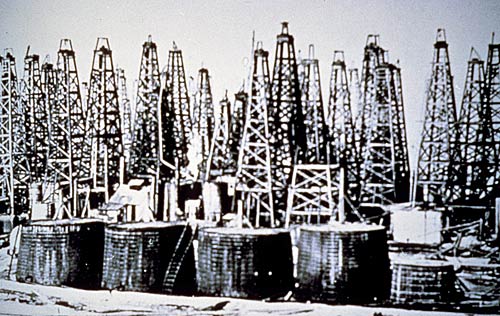It’s no secret that our region is the beneficiary of an economic boom of historic proportion, due to a perfect storm of high commodity prices and technological advances that have unlocked significant oil and gas reserves that were considered by most to be unrecoverable a decade ago.
The benefits of this boom are easily enumerated: low unemployment, high wages, and a staggering expansion of the tax base. The downsides are equally obvious: overtaxed infrastructure, scarce and expensive housing, and ridiculous traffic.
But there’s one additional negative impact I haven’t seen anyone else acknowledging, and that’s the mess that my chosen industry is making of the West Texas landscape. The oil business is making our countryside ugly.

I realize that many – most? – people already think that the spare, even desolate scenery around here is already ugly. But it’s getting much more so as we continue to bulldoze well sites and lease roads, build tank batteries and terminals and pipelines, and drill wells and install production equipment on increasingly tight spacing. As tough as our land is, it bruises easily and heals slowly.
I can also recall a time not so many years ago when it was possible to wander into the countryside and feel like you’d actually gotten away from civilization, with nothing manmade in sight. I wonder if there’s anywhere in West Texas where that’s still possible?
This observation was driven home as we traveled east from Midland on our way to the Hill Country. There’s a stretch of road between Garden City and Sterling City where the land opens up to the south, with a miles-wide panorama lined by mesas. The wind was gusting, and the blowing dust and scarred landscape presented a post-apocalyptic tableau straight out of A Boy and His Dog. I half-expected a chopped-and-armored 18-wheeler with gun turrets to appear around the next curve.
I’m a beneficiary of the positive fallout from the current economic situation, and I’m not hypocritical enough to wish it away. I just wish the development could be done without leaving such a large footprint on a countryside that has a certain majesty to it, even if you sometimes have to look sideways and squint just right to discern it.
Discover more from The Fire Ant Gazette
Subscribe to get the latest posts sent to your email.
